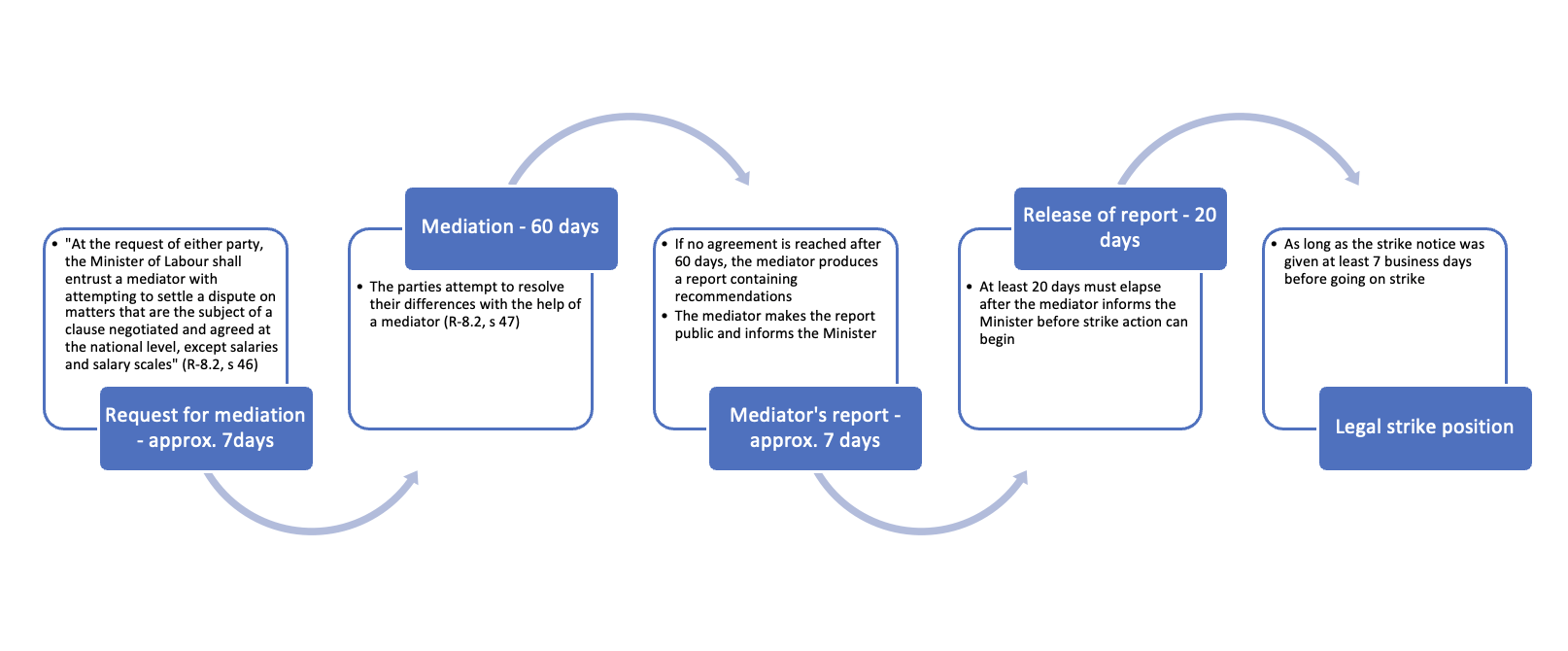
INFO-NÉGO # 4
Takeaway
Only pressure from teachers will yield progress at the bargaining table!
Next steps
Participate in end-of-term actions
Read
The Common Front was present in Sherbrooke to denounce the $30,000 increase that elected officials granted themselves while offering crumbs to public sector workers.
To break the deadlock in the negotiations, Teachers United filed a request for mediation under the Act respecting the process of negotiation of the collective agreements in the public and parapublic sectors on May 18, 2023. We hope this step will clearly indicate our dissatisfaction with the current state of the talks and, most importantly, elicit a response to our legitimate demands.
On April 6, the CEGEP employer bargaining committee, the Comité patronal de négociation des collèges (CPNC), passed on a call from the Treasury Board to speed up the talks and try to reach an agreement by June 30. That appeal was repeated recently. It is clear, however, that the means are currently lacking for meaningful progress at the sectoral table. Our bargaining timetable—the equivalent of approximately one day per week—is insufficient given the number and complexity of the issues to be addressed. Moreover, the employer side is having trouble providing full responses to many of our proposals and seems unable to engage in a real dialogue. So even if we were offered more bargaining time at the sectoral table, as Sonia LeBel has suggested for the summer, our counterparts would also need to have a proper mandate to respond to our concerns.
We probably shouldn’t be surprised that we have come to this dead end, given the government’s strategic objectives, which disregard the needs of the CEGEP network and subordinate them to the short-term imperatives of the labour market. The CPNC’s refusal to discuss teaching loads and its proposals to develop distance education reflect this reductive vision of the role of our CEGEPs. As we know, improving our teaching conditions will have a direct impact on access to higher education throughout Québec. The topics our alliance wants to discuss at the bargaining table are tied to our desire to preserve the CEGEP network’s mission, which we hold dear and which Teachers United is determined to defend.
The means to achieve our ends
Our request for mediation takes our pressure tactics up another notch and is one more step towards strike action. We hope it will have an impact and will lead to real progress at the bargaining table. Otherwise a walkout may be necessary to achieve the gains we seek. If need be, consultations on the specifics of strike action will take place in early fall, after we have had the summer to replenish our energies and rebuild the strengths we plan to pool!
Request for mediation

Unlike collective bargaining in other sectors, in Québec's public and parapublic sectors mediation is a mandatory step before a union can legally strike. By requesting mediation this spring, the unions are starting the process that will put them in a legal strike position according to the timelines set out in the law.

